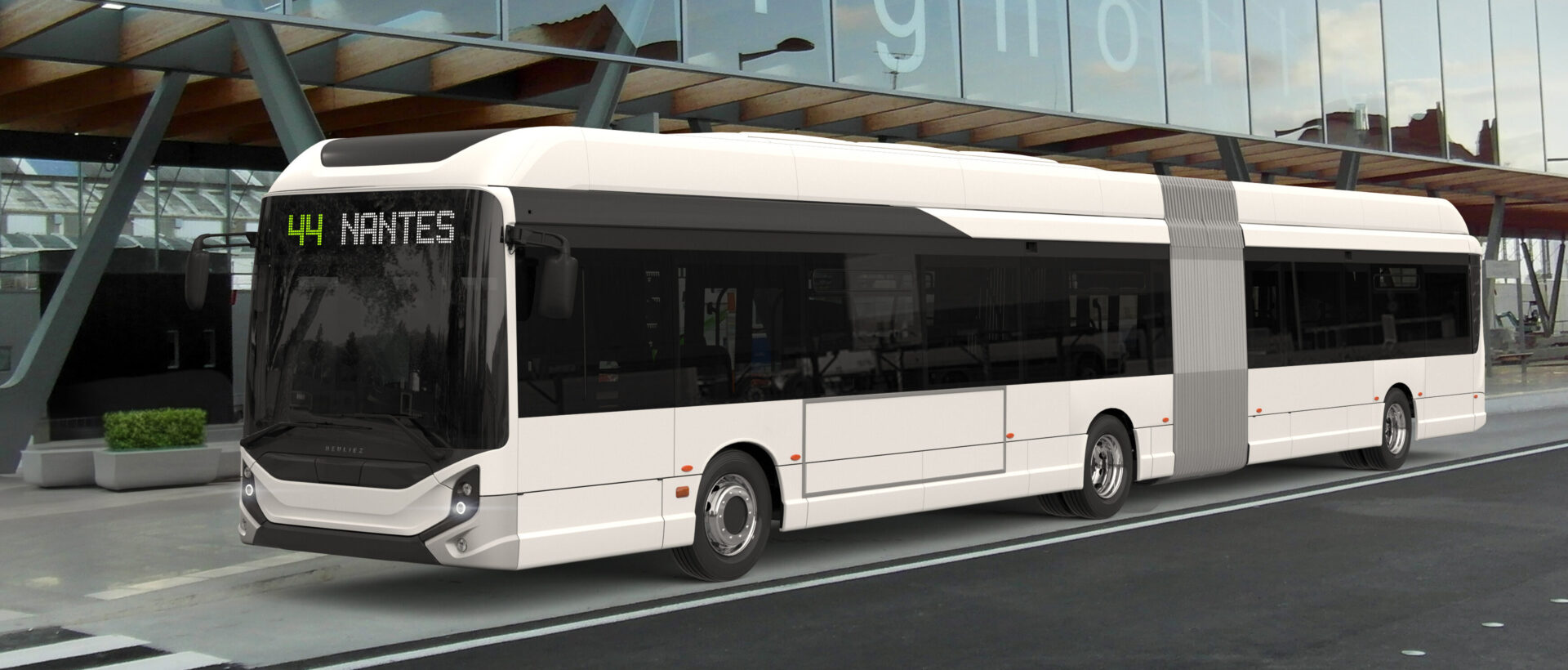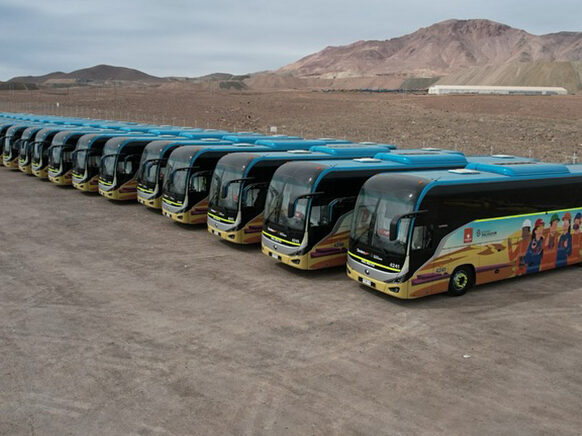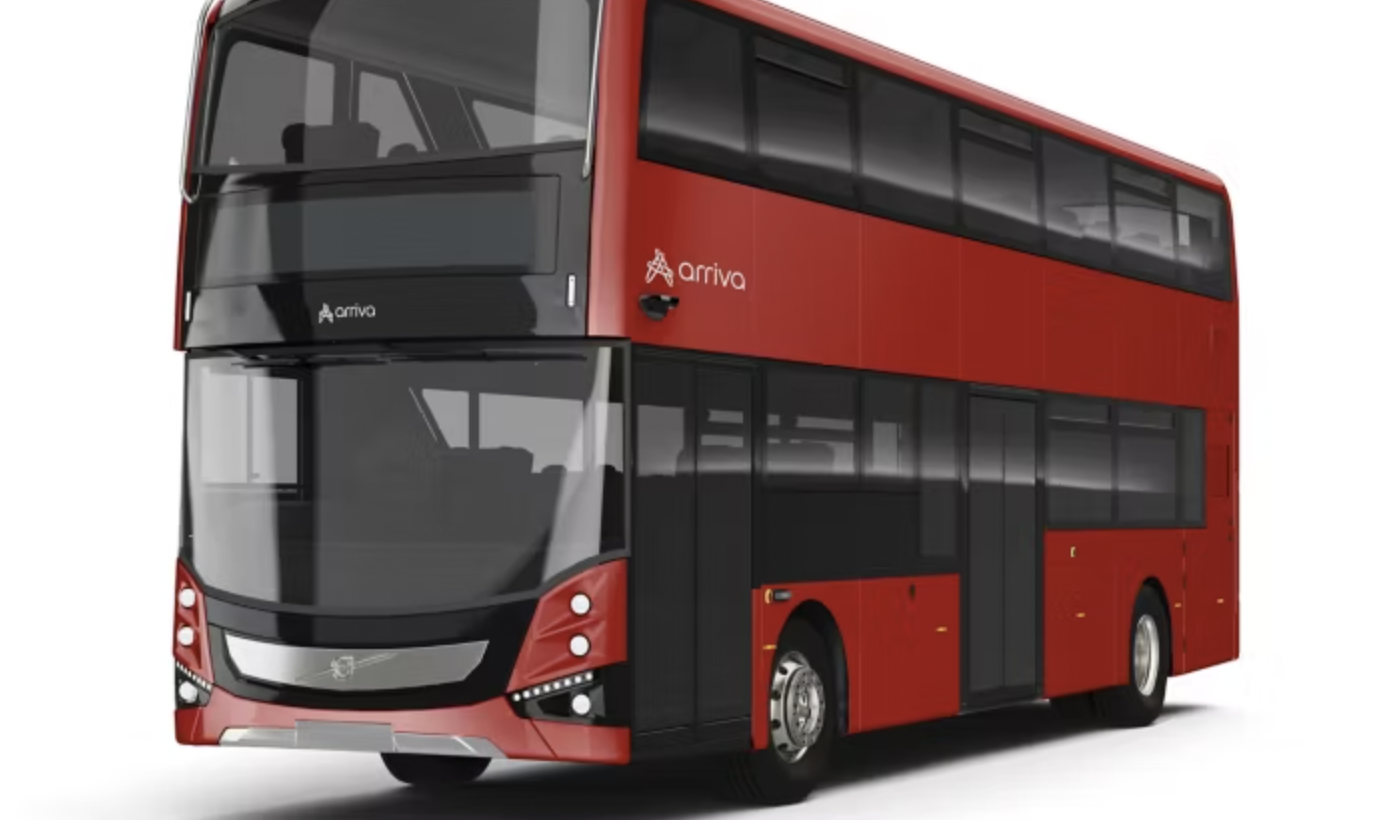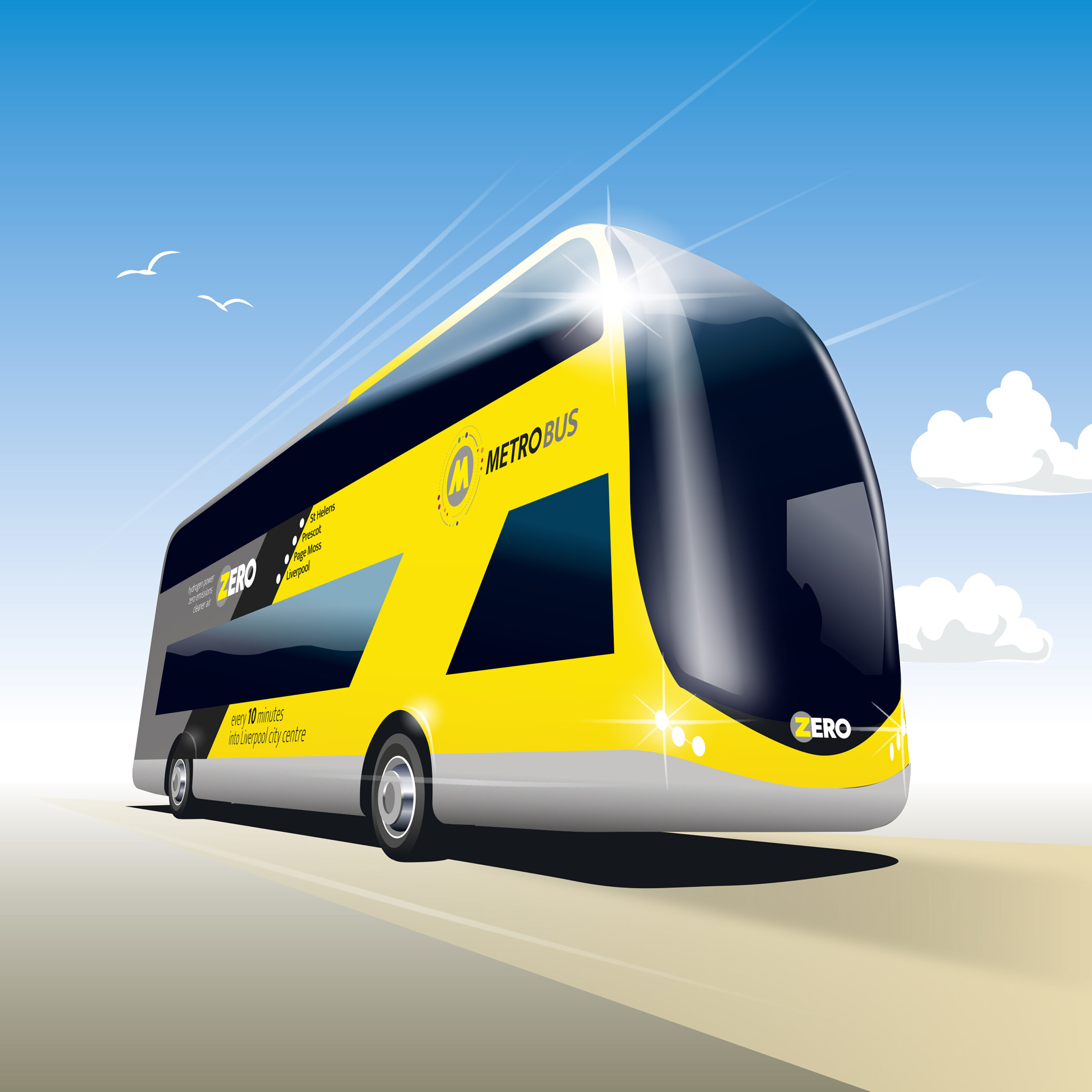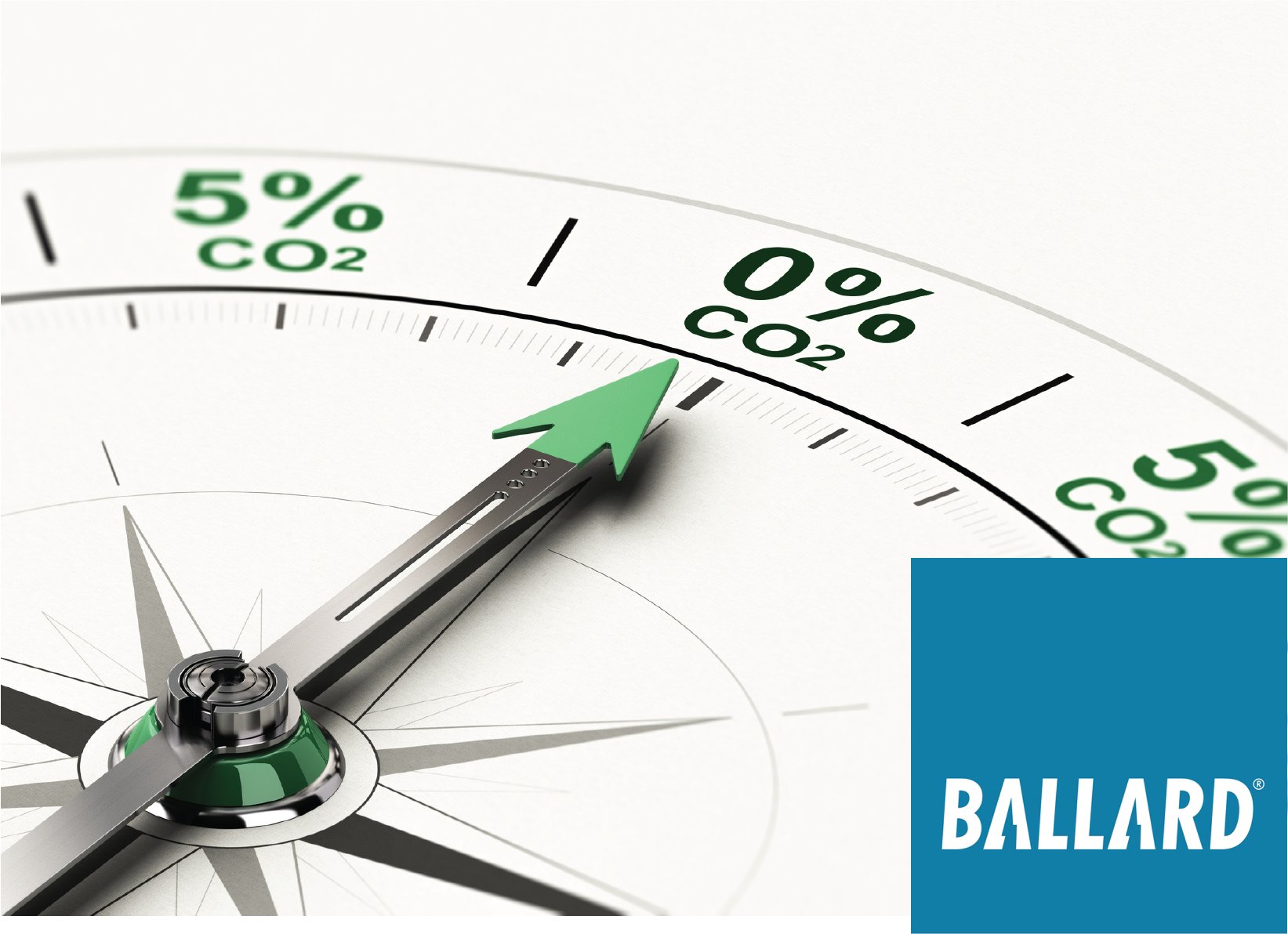New Zealand’s First Hydrogen Fuel Cell Bus Unveiled
Auckland Transport (AT) has unveiled New Zealand’s first hydrogen fuel cell bus, as the organisation transitions to an emissions-free fleet.
The bus was unveiled by the Minister of Transport Michael Wood and Mayor of Auckland Phil Goff at Ports of Auckland – where the bus will be refuelled with green hydrogen.
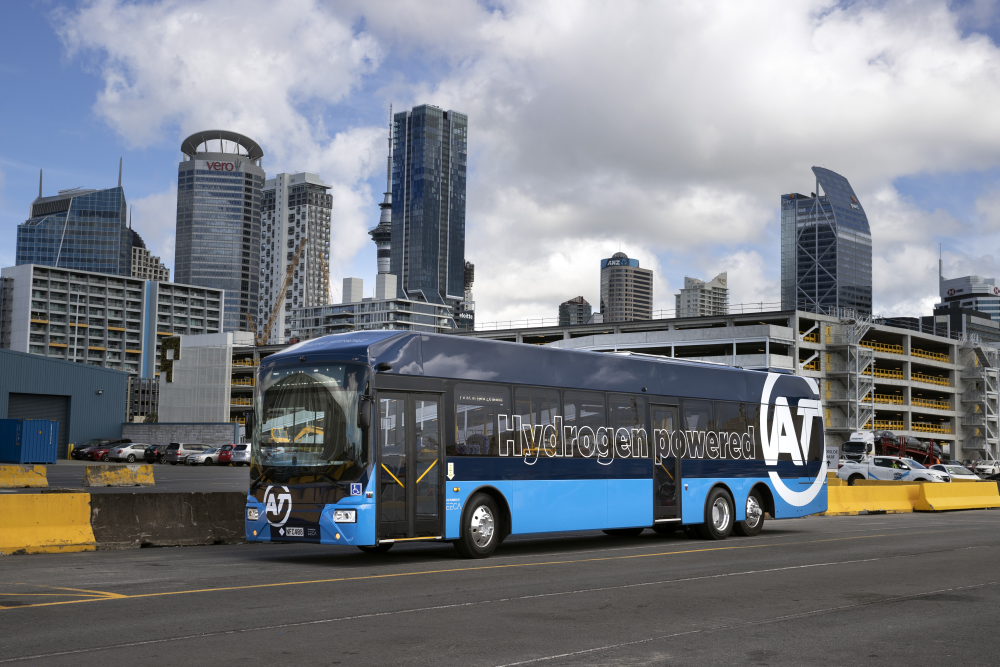
In response to Ports of Auckland’s invitation to participate in the Hydrogen Demonstration Project, AT commissioned the production of the hydrogen fuel cell bus at the cost of $1.175million.
The three-axle bus, which is AT’s biggest single deck bus, will be used to trial operational performance and see how operating costs compare to diesel and electric buses of similar configurations. It fits 43 seated adults and 31 standing adults.
The bus was built by Global Bus Ventures in Christchurch and will be operated with Howick and Eastern Buses by Transdev for an initial two-year trial on route 70 from Botany to Britomart via Panmure.
Mayor Phil Goff welcomes the trial of the hydrogen-powered bus.
Mayor, Phil Goff, said:Decarbonisation of our public transport fleet is an important demonstration of Auckland Council taking the lead in reducing the city’s carbon emissions.
In Auckland, transport makes up 40 per cent of the city’s overall carbon emissions. While our focus has been on electrification of vehicles and buses, it is important that we also explore the option of replacing diesel buses with hydrogen-powered vehicles. These produce zero-emissions and could complement our electric bus fleet. Auckland Council has committed to no further purchase of diesel buses from this year.
Auckland Transport’s Chief Executive Shane Ellison says Auckland Transport is committed to doing its part by accelerating the Low Emission Bus Roadmap targeting 2030 – for all buses to be zero-emissions at tail pipe.
Auckland Transport’s Metro Decarbonisation Manager Darek Koper says AT’s involvement in purchasing the hydrogen bus was to prove to the market that hydrogen buses can be developed to meet New Zealand’s unique operational and design requirements, and to help in the development of hydrogen as a fuel.
Auckland Transport’s Metro Decarbonisation Manager, Darek Koper, said:Through the development of the Low Emission Bus Roadmap, Auckland Transport identified hydrogen as a potential fuel for Auckland’s future low emission public transport fleet. The outcome of this two-year trial will help operators make informed decisions about which technology should be selected.
This exciting unveiling of the hydrogen fuel cell bus follows our January launch of our fully electric bus fleet, the AirportLink. We also launched Waiheke’s electric bus fleet at the end of 2020.
Ports of Auckland’s Chief Executive Tony Gibson says it was great to have the event on site at Ports of Auckland today – where the bus will be refuelled with green hydrogen delivered to Ports of Auckland’s temporary refuelling station.
General Manager of Howick and Eastern Buses by Transdev, Sheryll Otway, says the bus company is excited to partner with Auckland Transport again, following the launch of Auckland’s first electric three-axle ‘extra-large’ bus, back in October 2020.
The estimated cost of the full transition to zero-emission (including EV and hydrogen) is expected to cost between $150 million to $200 million.
This article was originally published by Auckland Transport.


